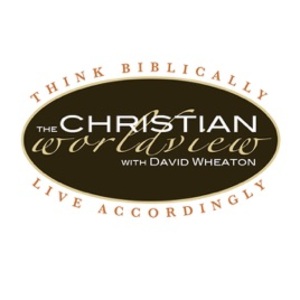
This broadcaster has 443 podcast archives available on-demand.
Keep up-to-date with this broadcaster on social media and their website.
May 10, 2020 8:00 pm
https://www.thechristianworldview.org/topic-a-brief-tour-of-2000-years-of-church-history/
After 14 were you start out by saying the Middle Ages now or in the year of thousands let's say after Christ were rather unique time in the history of ideas when you study church history in the Middle Ages when you study philosophy in the Middle Ages you are studying the exact same people, events, books and ideas that is not true of other errors is certainly not true of the 21st century.
The Middle Ages were the time of Christendom. The bringing together of all things under the rubric and sphere of the church.
So we have not two separate disciplines of theology and philosophy in the Middle Ages. We have them both intertwined in much of the theological full philosophical discussion revolved around God's communication to his creatures and the revelation of his will to use philosophical categories we would say, metaphysics, epistemology and ethics is allowed and that that paragraph as you introduce this period of time known as the Middle Ages tell us about why. At that time there was the separation of philosophical and theological that we see today and how the Roman Catholic Church was integrated back then was that really the only church in town was the Roman Catholic Church.
The same way as it was today with the same kind of doctrinal errors that it it teaches today. How did that figure into this time biodegrade? I think first of all we did address the idea of the church. It really was a Roman Catholic Church that that was the only church in the Middle Ages to you either an outright pagan and like a Celtic druid or something or your Roman Catholic or courses the option of his long that this is really all that you have. It's not until the Protestant Reformation and we have a sharp divide now between Protestantism and Roman Catholicism, I think. Secondly, we need to recognize that it just wasn't the medieval Catholic Roman Catholic Church was of the same 500 as it was in 1517. The time of the Reformation, but over the centuries. It drifted further away from God's word and added more and more sort of layers of teaching so that the layers of teaching of the church became the focus is not the Bible became the focus that didn't happen overnight and 500 but it happened over the centuries. So those are some ways for us to understand that sort of thousand year.
But I think rather than just sort of dismissing on the Protestant. I love the Reformation so I'm all about the Reformation but rather than just dismiss the Middle Ages as one big misstep.
I think we need to take a look back and say what was going on there, though, that could be helpful course and I think one of the things we see is that we'd feed it. All of this territory in the modern age would let the academy do its thing and and we as Christians have sort of isolated ourselves into our theology in church sort of bubble and you come to the Middle Ages and you say of the greatest philosophers. These were these are absolutely committed to studying who God was, and knowing who God is not the greatest theologian the greatest philosophers, whereas in Rh, we got this rampant secularism that has just driven a sharp wench between philosophy and theology or science and religion even have that in Middle Ages and I think there are some things to be learned. There that we don't have to give up this ground as Christians we can be the best philosophers leaving the best scientists because we understand this to be the world that God has made a tremendous advantage for soak so those are some of the things recognizing that there were a lot of theological and ecclesiological myth steps in the Middle Ages.
There is still a lot that we can gain from that. In terms of how we approach life and how we think about the world we live in�